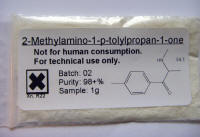User talk:Claire Harkins
Organic Industry Structure
National Organisation for Foetal Alcohol Syndrome UK
Booze in News Past Stories
- Big Alcohol are reducing the alcohol volume in key products by 0.2% in order to pay less duty to the UK exchequer. Daily Mail, 22 January 2012, Taxbeater! Stella and Budweiser cut alcohol levels in bid to save millions of pounds in duty hikes, Mirror, 22nd January 2012, Alcohol content of top beers Budweiser, Stella Artois and Beck's cut to save cash
- NME, 26th October 2011, Coroner expected to hear that Amy Winehouse's died from alcohol withdrawal Inquest into the singer's death begins today (October 26) in London
- British Medical Journal, 27th September 2011, Mark Bellis, UK drinking guidelines are better for the alcohol industry than the public
- The Sunday Times, 2nd October 2011, Melanie Newman and Mark Hookham Beer-tax MP ‘blurs lines’ on lobbying rules: Conservative who campaigned for a cut in alcohol tax was being paid more than £30,000-a-year by a consultancy linked to a brewer (Subscription Required)
Former Booze in the News Stories
- Reuters, 12 January 2012, Red wine-heart research slammed with fraud charges
- BBC, 19 January 2012, Beer 'must be sold' at Brazil World Cup, says Fifa, the sale of alcohol in sports stadia is not permitted in Brazil on the grounds of promoting health and reducing violence. This has been the case since 2003. Budweiser is a major sponsor of the FIFA world cup and together Budweiser and FIFA are working together to force a change in Brazilian policy in order to increase alcohol sales.
- ↑ Howard, Philip H. 2009. Organic Industry Structure. Media-N Journal of the New Media Caucus, 5(3).-online.png|Howard, Philip H. 2009. Organic Industry Structure. Media-N Journal of the New Media Caucus, 5(3)-online|Acquisitions by the Top 30 Food Processors in North America. (click to resize)
- ↑ Fantasia Mephedrone accessed 13th June 2012
European Travel Retail Confederation
EPC Alcohol
In 2001 the European Commission began to lay the foundations of an alcohol strategy for Europe.
The EPC were asked to chair a series of four meetings intended to‘identify areas of agreement between the stakeholders as to actions that can contribute effectively to the reduction of alcohol-related harm and indicate where and why there is disagreement, and in so doing help create confidence between stakeholders’.[1] According to the Institute of Alcohol Studies these meetings were "At the behest of the [alcohol] Industry, DG SANCO officials organised roundtable discussion through the aegis of the European Policy Centre, between representatives of the Commission, Member States, Industry and NGOs to discuss the draft proposals for a European Alcohol Policy Strategy". [2] The meetings involved working through 78 issues or policy proposals related to alcohol harm reduction that were presented by the European Commission in an informal draft of their communication on Alcohol. Participants graded each item using a traffic lights system, green issues were broadly agreeable to all present, amber a possibility and red a clear no. 68 of the measures were marked green, Seven were amber, indicating no overall agreement but that some compromises might be reached. Three were categorised as red issues where the industry simply refused to negotiate. [3]
Dr Peter Anderson, author of the Alcohol In Europe report (2006) commented “The European Policy Centre (EPC) describes itself as ‘an independent, not-for-profit think tank, committed to making European integration work’. Its independence is, of course, ensured by the fact that its prime corporate members and sponsors include InBev, the world’s largest brewer and Philip Morris International”. [4] The final outcome of this process, and other consultations resulted in the launch of the European Alcohol and Health Forum.
In 1998 Diageo and The Weinberg Group helped set up a European Policy Centre Forum. Correspondence shows a representative of Diageo trying to organise a discount for a booking made by Weinberg Group for a forum run by the EPC. <ref> Legacy Library, [http://legacy.library.ucsf.edu/documentStore/
- ↑ Corporate Europe Observatory, Part One: The European Policy Centre European Think Tank Series, Issue 2, October 1998,
- ↑ Rutherford, D. (2006) AIS Editorial The Globe Issue accessed 28th October 2013
- ↑ Anderson & Baumberg, Alcohol Policy: Who should sit at the table? Addiction Volume 102, No. 2 pp 335-336 (online subscription required)
- ↑ Anderson & Baumberg, Alcohol Policy: Who should sit at the table? Addiction Volume 102, No. 2 pp 335-336 (online subscription required)
![[1]](/images/b/bb/Howard%2C_Philip_H._2009._Organic_Industry_Structure._Media-N_Journal_of_the_New_Media_Caucus%2C_5%283%29._-online.png)
